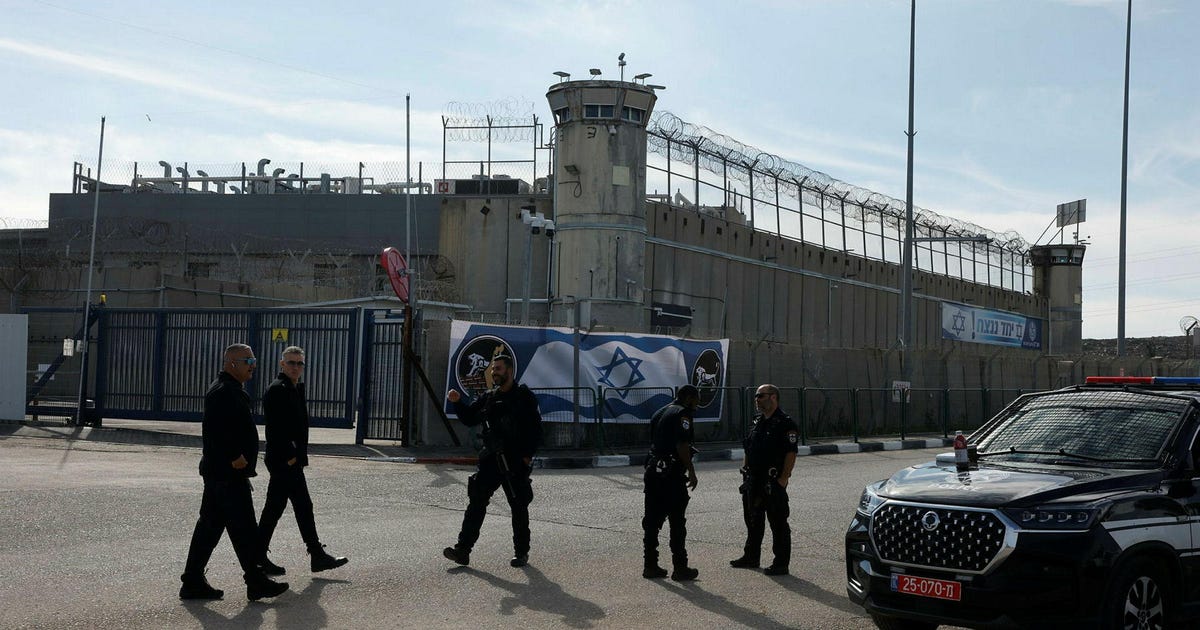The Israeli Justice Ministry late Thursday night released a list of Palestinian security prisoners set to be freed as part of the hostage-release and cease-fire agreement with Hamas.
The full list has yet to be made public, following the last-minute replacement of 11 names that had already been approved by the Israeli government. One official told Haaretz the changes were likely made due to pressure from security officials and bereaved families, leading ministers to conduct a cabinet vote via phone on the change, which replaced prisoners from Fatah with Hamas operatives.
Meanwhile, the Choose Life Forum of bereaved families and victims of terror submitted a petition on behalf of hundreds of bereaved families, demanding that the courts stop the release of who they say are “terrorists who will continue to murder.”
On Friday morning, the Defense Ministry announced that families of terror victims would begin receiving notifications that the attackers of their loved ones are among those to be released under the deal.
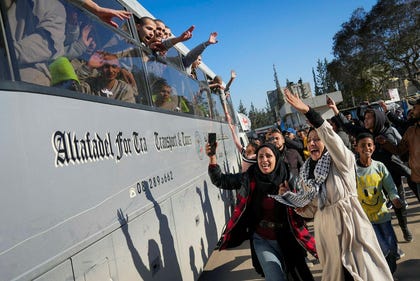
 Close
Close
Palestinian prisoners released to Gaza, February. Credit: Abdel Kareem Hana/AP
Palestinian prisoners released to Gaza, February. Credit: Abdel Kareem Hana/AP
Defense officials warned that many of those released could rise to senior positions in Hamas and Fatah in the coming years. “We are essentially releasing the next Yahya Sinwar,” a senior defense official told Haaretz, referring to the slain head of Hamas’ military wing. “These are extremely intelligent and dangerous individuals – we must know who they are and what they’re capable of.”
Related Articles
The released prisoners include Raed Sheikh, a former member of the Palestinian police force who was sentenced to two life terms for the killing two IDF reserve soldiers during a lynching in Ramallah.
In October 2000, Israeli reservists Vadim Norzhich and Yosef Avrahami mistakenly drove their car into Ramallah, shortly after the outbreak of the second intifada. They were then arrested by Palestinian security forces. A Palestinian mob stormed the police station where they were being held, beat the two to death, mutilated them and displayed their bodies.
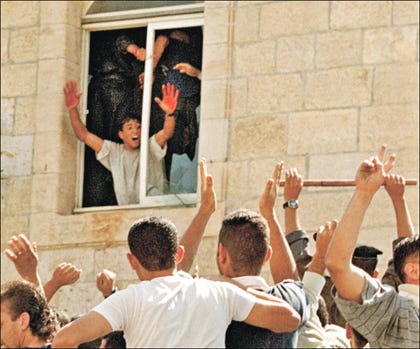
 Close
Close
The lynching of two Israelis in Ramallah in 2000. Credit: AFP
The lynching of two Israelis in Ramallah in 2000. Credit: AFP
In handing down their verdict, the judges at the Ofer military court determined that Sheikh was responsible for ordering the soldiers to get out of their car, and that he took them into the police station where the lynching took place.
Haaretz WeeklyHow Trump forced the Gaza deal through: Behind the scenes with Anshel Pfeffer
play
Haaretz Weekly
How Trump forced the Gaza deal through: Behind the scenes with Anshel Pfeffer
Volume: 0.5
1X
total– : –time0:00
fast forward15
play
rewind15
Also to be released is Iyad al-Rub, a senior Islamic Jihad operative convicted of murdering six Israelis in a suicide attack in the central Israeli city of Hadera.
The attack occurred in front of a falafel stand at the entrance to the market in downtown Hadera, and also wounded some 55 others.
Israel has also agreed to free Mohammed Aradeh, an Islamic Jihad operative convicted of murdering an Israeli, and the mastermind behind the escape of six prisoners, including Fatah senior official Zakaria Zubeidi, from an Israeli prison.
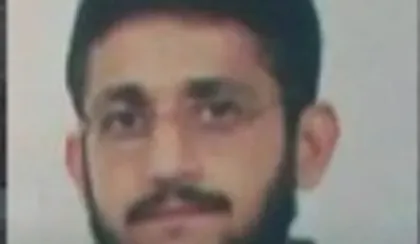
 Close
Close
Mohammed Aradeh.
Mohammed Aradeh.
Fares Anam, who killed eight Israelis, is also on the list. As is Hussein Rawadra, from Jenin, who fatally stabbed soldier Eden Atias in a bus in the northern Israeli city of Afula in 2013 when he was 16.
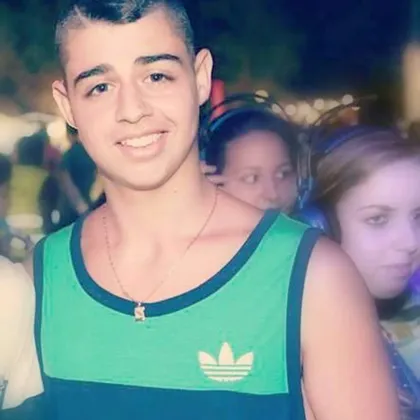
 Close
Close
18-year-old Eden Atias who was killed in a bus in Afula.
18-year-old Eden Atias who was killed in a bus in Afula.
Maher Abu Srour, a Hamas operative from the Aida refugee camp near Bethlehem who had collaborated with the Shin Bet, and then stabbed and bludgeoned his Shin Bet handler, Haim Nahmani, to death in 1993, is also to be freed. His siblings, Nasser and Mahmoud, also participated in the killing.
In addition, Israel has agreed to release Baher Badr, a Hamas member sentenced to 11 life terms for planning a bus station bombing outside an IDF base that killed eight people in central Israel, and Iham Kamamji, convicted for his role in the 2006 murder of 18-year-old Eliyahu Asheri, from the West Bank settlement of Itamar. Kamamji kidnapped Asheri from a hitchhiking spot near the settlement of Ofra, killed him with a gun, and then buried him in a hole in the ground in Ramallah. Kamamji was also one of the six prisoners to escape from Gilboa prison.
Under the approved agreement, Israel will release around 250 prisoners serving life sentences for murdering Israelis over the past four decades. Roughly 40 convicted terrorists will remain behind bars. Israel is expected to refuse the release of prisoners who have become Palestinian national symbols.
Israel rejected several of the names proposed by Hamas, including high-profile terrorists Abdullah Barghouti, one of the heads of Hamas’ military wing during the Second Intifada, and sentenced to 67 life terms for the murder of 60 Israelis; Ibrahim Hamed, a senior Hamas operative convicted of murdering 46 Israelis; Amjad and Hakim Awad, who murdered a family of five in a West Bank settlement; and Mahmoud Atallah, who was accused of a series of rapes and other sexual offenses against two female soldiers serving as guards in Israeli jails.

